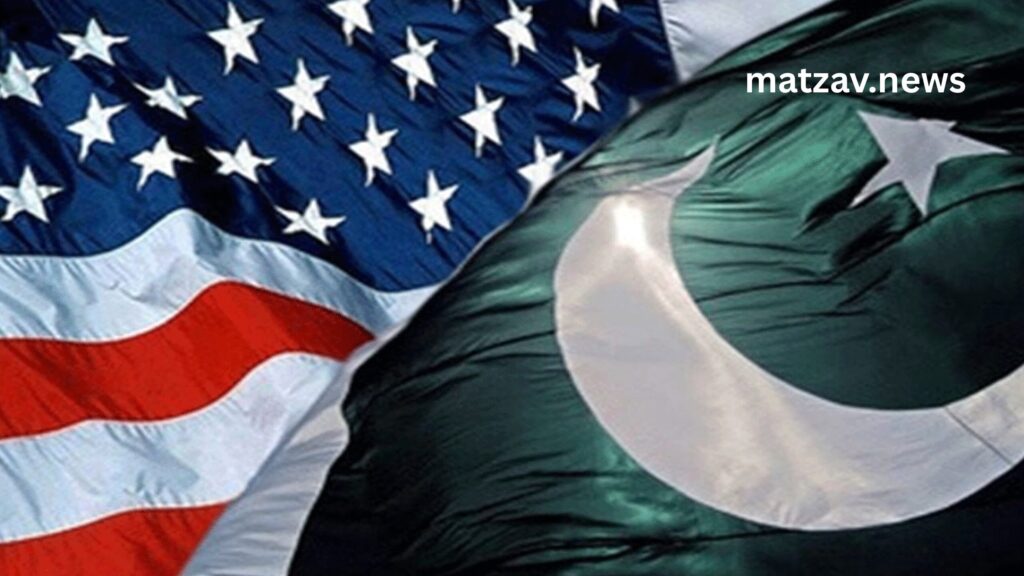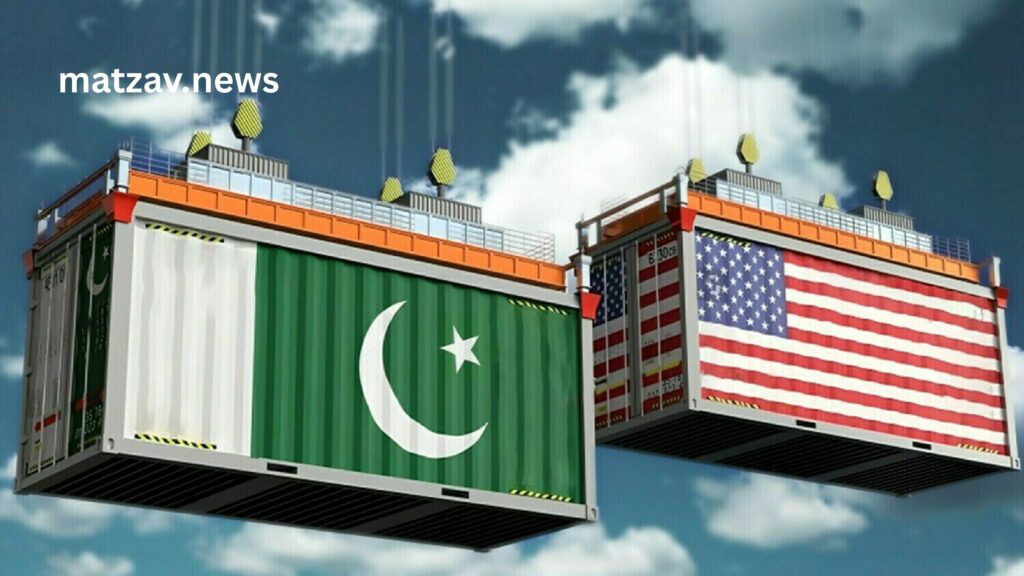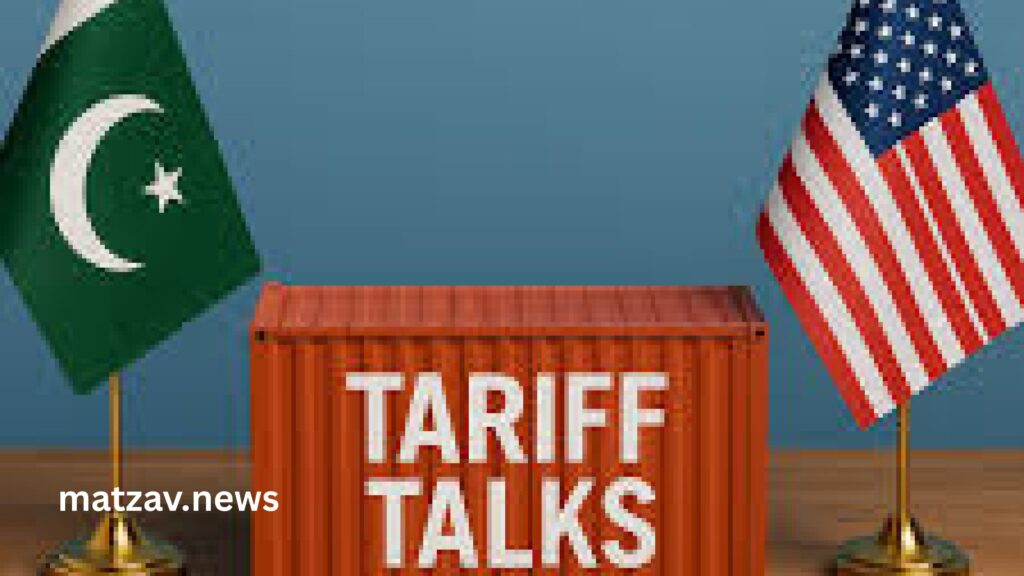Pakistan has announced plans to send a high-level delegation to the United States for negotiations centered around trade tariffs. This diplomatic move highlights the country’s proactive efforts to address key economic concerns, foster international partnerships, and enhance bilateral trade with one of its significant trading partners.
The talks are expected to focus on reducing existing tariffs, improving market access for Pakistani goods, and creating a more balanced trade relationship. The delegation will likely include officials from the Ministry of Commerce, representatives from key export sectors, and economic advisors. The upcoming discussions come at a time when global trade dynamics are shifting, and Pakistan is seeking to strengthen its export-driven economy through strategic international collaborations.
Importance of US-Pakistan Trade Relations
Growing Bilateral Trade Ties
The trade relationship between Pakistan and the United States has seen consistent growth over the years. The United States remains one of Pakistan’s largest export markets, particularly for textiles, apparel, and leather goods. Both countries have a mutual interest in expanding trade volume to create more job opportunities and economic stability.
USUS as a Key Economic Partner
The United States provides significant investment and economic aid to Pakistan. By engaging in trade tariff negotiations, Pakistan is looking to secure better terms and reduce trade imbalances. These talks also open doors for new sectors, such as IT, agriculture, and pharmaceuticals, to enter the US market with fewer restrictions.
Read More: https://matzav.news/musk-tied-investor-clashes-with-biggest-asset-managers/
Objectives Behind the Delegation Visit
Reducing Trade Barriers
One of the primary goals of the Pakistani delegation is to seek reductions in tariff rates imposed on Pakistani exports. Lower tariffs can make Pakistani products more competitive in the US market, boosting export earnings.
Enhancing Market Access
Improving access to the US market is vital for Pakistani exporters. The delegation aims to negotiate favorable terms for key industries, including textiles, surgical instruments, and sporting goods, which face stiff competition from other countries.
Strengthening Economic Diplomacy
Beyond trade, the visit is part of broader economic diplomacy efforts. Strengthening ties with the US can lead to enhanced investor confidence, increased collaborative ventures, and broader geopolitical benefits.
Key Sectors to Be Represented in the Talks

Textile and Apparel
The textile sector is Pakistan’s largest export industry and a significant focus in trade talks. Delegates will push for duty-free or reduced-tariff access for garments and fabrics.
Surgical Instruments
Sialkot-made surgical instruments have a global reputation. Pakistan aims to secure more favorable market conditions in the US for its high-quality products.
Agriculture and Food Products
Agricultural exports, especially rice and mangoes, face non-tariff barriers. Discussions may include sanitary and phytosanitary standards to enable smoother exports.
IT and Technology Services
Pakistan’s growing tech sector sees the US as a vital market. Talks may explore opportunities for outsourcing, tech transfer, and startup collaboration.
Potential Impact of Tariff Talks on Pakistan’s Economy
Boosting Export Revenues
Lower tariffs can significantly enhance Pakistan’s export revenue by making products more cost-competitive.
Job Creation and Industrial Growth
Increased exports could lead to higher production, job creation, and growth in manufacturing and service sectors.
Encouraging Foreign Investment
Successful negotiations may improve Pakistan’s image as a trade-friendly nation, encouraging further investment from American companies.
Previous Trade Discussions and Their Outcomes
Historical Context of US-Pakistan Trade Talks
Past trade talks have centered on issues related to aid, defense, and market access. Previous efforts have laid the groundwork but were limited by geopolitical tensions.
Shifts in Policy Under Recent Administrations
Both Pakistan and the US have shown renewed interest in economic engagement. Policy shifts have enabled greater openness to trade negotiations, particularly during the post-COVID recovery period.
Role of Commerce Ministry and Trade Representatives

Ministry of Commerce’s Leadership
The Ministry of Commerce will coordinate efforts to prepare a data-driven case for tariff reductions and improved access.
Input from Exporters and Industry Leaders
Industry bodies and export associations have been consulted to ensure the delegation represents genuine ground-level concerns and potential opportunities.
US Interests in Strengthening Trade with Pakistan
Diversifying Trade Partnerships
Amid global supply chain shifts, the US is seeking to diversify its import sources. Pakistan offers a low-cost, quality-driven alternative.
Regional Strategic Considerations
Enhanced trade ties also serve strategic goals, including balancing influence in South Asia and promoting regional stability through economic cooperation.
Potential Challenges and Risks in the Talks
Political and Bureaucratic Hurdles
Negotiations could face slowdowns due to bureaucratic red tape or changes in the political climate on either side.
Compliance with International Standards
Pakistan must meet stringent quality, labor, and environmental standards to gain tariff concessions.
Competing Exporters
Countries like Bangladesh, Vietnam, and India pose stiff competition. Pakistan must offer unique value to secure US trade favor.
Expected Timeline and Outcomes of the Visit
Scheduling and Agenda
The delegation is expected to visit Washington, D.C., within the next quarter. The talks will span several days and cover both sector-specific and overarching trade issues.
Short-Term and Long-Term Expectations
In the short term, mutual understanding of trade irritants is expected. Long-term goals include formalizing a bilateral trade agreement or preferential trade status.

Frequently Asked Questions
Why is Pakistan sending a trade delegation to the US?
To negotiate reduced tariffs, improve market access, and boost bilateral trade.
Which sectors will be discussed in the trade talks?
Key sectors include textiles, surgical instruments, agriculture, and information technology (IT).
When will the talks take place?
The talks are expected to take place in the upcoming quarter, likely in Washington, D.C.
Who will be part of the Pakistani delegation?
Officials from the Ministry of Commerce, representatives from the export sector, and economic advisors.
What benefits could result from successful talks?
Increased exports, job creation, investment opportunities, and stronger ties.
What challenges might the delegation face?
Bureaucratic delays, trade policy shifts, and demanding USUS compliance standards.
Will these talks lead to a free trade agreement?
Not immediately, but they may pave the way for preferential trade agreements.
How does the US benefit from this engagement?
By diversifying import sources and strengthening strategic ties in South Asia.
Are US businesses interested in Pakistan?
Yes, particularly in sectors like IT, textiles, and agriculture.
What impact will this have on Pakistan’s economy?
Potentially a favorable outcome through exports, job creation, and foreign investment.
Conclusion
Pakistan’s decision to send a delegation to the United States for trade tariff talks marks a strategic move to strengthen economic diplomacy and secure more favorable trade terms. The outcome of these negotiations could play a crucial role in shaping Pakistan’s future export strategy and broader international trade relations.
